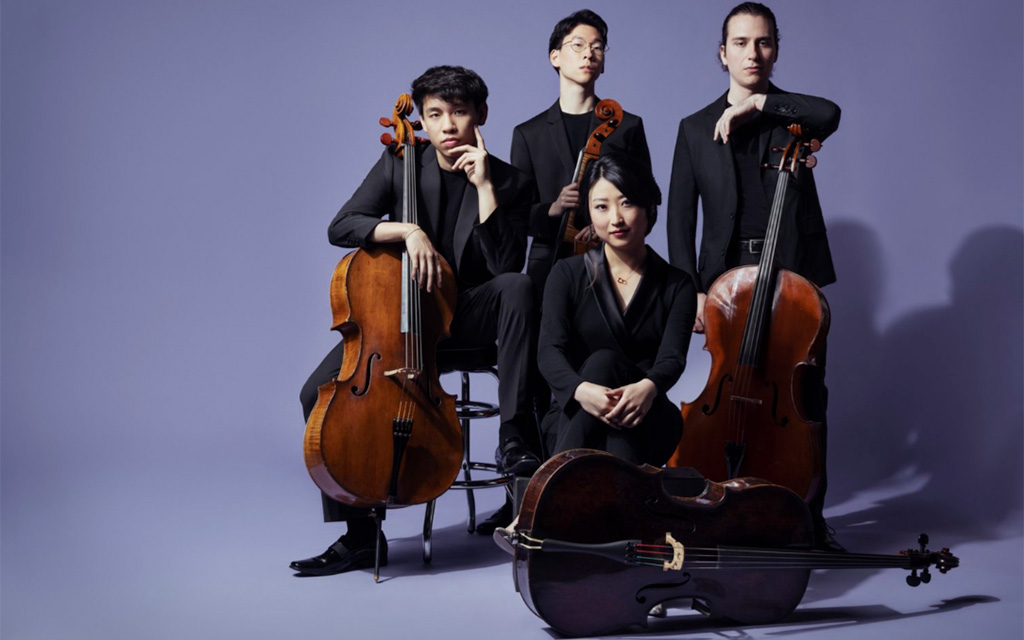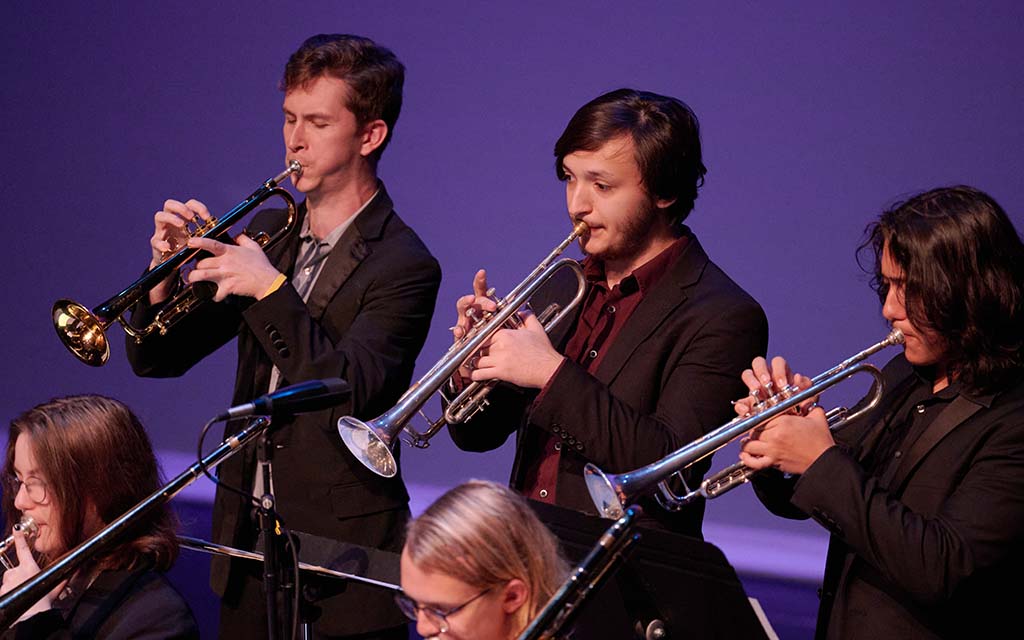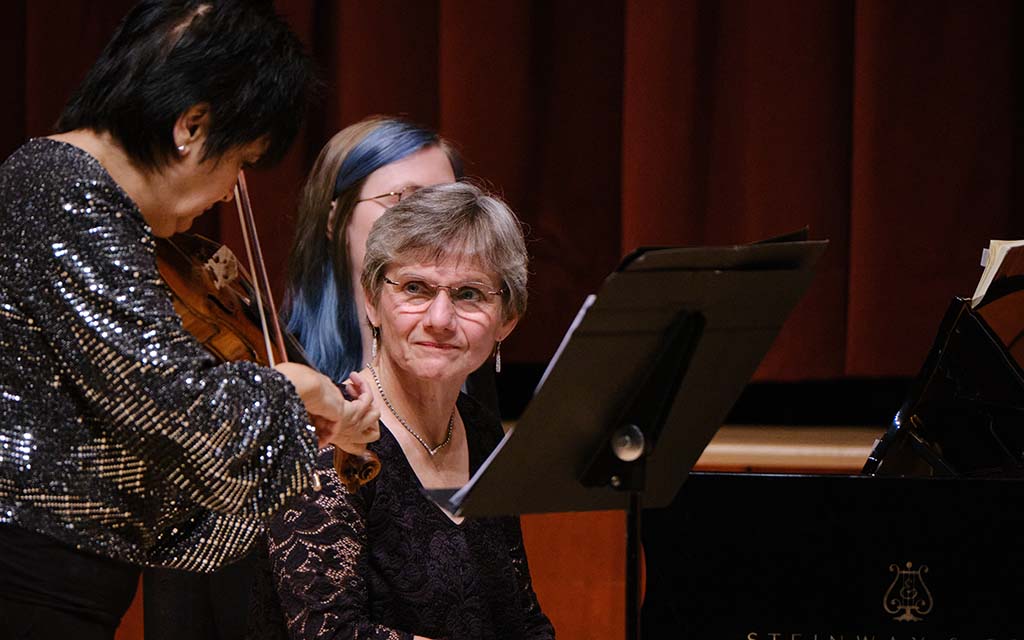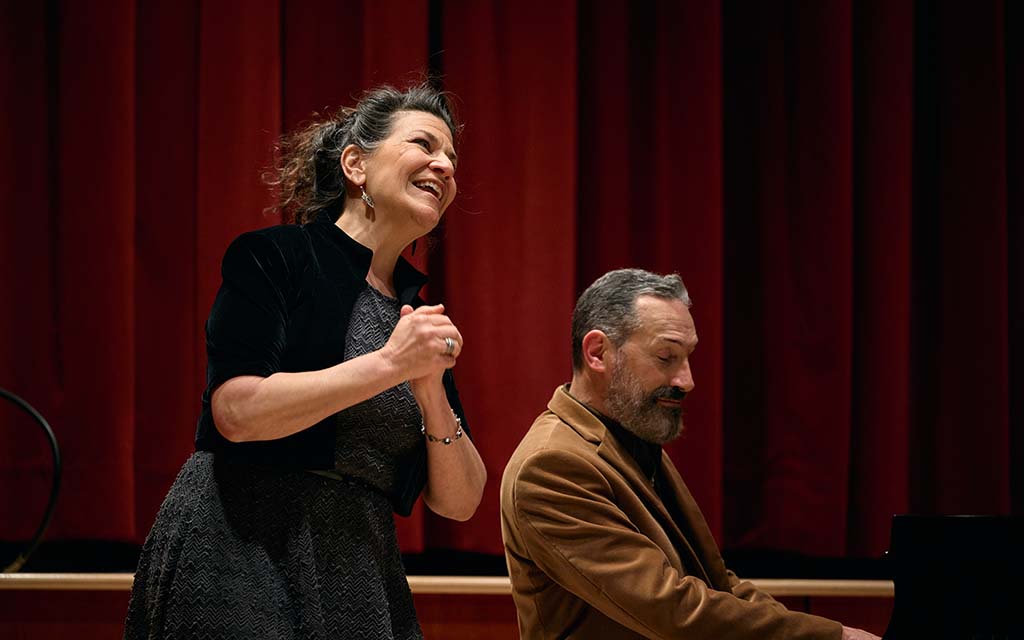Chapter IV: High School Housing Policies
Housing Refunds
Room rates will be adjusted as follows for any changes in the housing assignment:
- Through 1st week: 90%
- Through 2nd week: 80%
- Through 3rd week: 60%
- Through 4th week: 40%
- After 4th week: 0%
Students who receive a disciplinary suspension will not receive a refund, regardless of the date of departure.
Room Sign Up
During the spring semester, all returning high school students can fill out a housing
application for a residence hall room for the following year. All new students will
be allowed to fill out a housing application upon admission. New and returning students
will be assigned a residence hall room based on preferences indicated in the housing
application. Preferences will be taken into consideration during the assignment process,
but are not guaranteed. Final assignments will then be communicated to students during
the summer months.
Room Assignments
Most residence hall rooms are set up for two people. On occasion, a room may be converted
to house an additional student, that is, a double room may be converted to house three
students. Room assignments are made without regard to race, color, national origin, religion,
sex, age, sexual orientation, gender identity, gender expression, genetic information,
disability, veteran status, or political affiliation and are considered final. Students will not occupy or reside in any space other than their assigned room. Students
may not assign or sublet all or any part of their room.
UNCSA reserves the right to make room assignments, to authorize or deny room and roommate changes, to consolidate vacancies, and to require a student to move from one room or residence hall to another. UNCSA will comply with the Americans with Disabilities Act to accommodate eligible students with disabilities who may require housing in appropriately accessible residence halls. Although we try to honor roommate or building preference requests received by June 15, we may not be able to fill all requests.
In the event of an emergency (medical, utility, weather, terrorism, etc.)
UNCSA reserves the right to take all reasonable measures, including converting the
residence halls to special purpose facilities without any proportional refunds to
a student’s housing charge. In such extraordinary circumstances, UNCSA may require
all residents to vacate the residence halls on a 24-hour notice. Once the emergency
is resolved, residents will be allowed to return upon notice from the University.
Room Check-In and Check-Out
During check-in, students receive a room key and must complete a Room Inventory via
the Housing Portal within 72 hours. For check-out, students and the High School Life
staff member note any damages and changes to the room on the Room Inventory via the
Housing Portal. Students will be held responsible for any damages and discrepancies.
Students can view the completed Inventory Report via the Housing Portal and dispute
any discrepancies, which will provide an estimate of any damage charges that will
be billed.
Room Change
UNCSA generally operates at full occupancy, so room changes are not easy to accommodate.
If a student experiences a roommate conflict, the Residence Hall Coordinator and the
Assistant Director for High School Life will work with the students to resolve any
conflicts. Room changes are granted only in rare cases and may happen only after every
effort has been made to resolve the situation through respectful communication, compromise,
and mediation. Students should work with High School Life staff to resolve these matters.
Room changes are considered only if:
- All conflict resolution options have been exhausted;
- A suitable space is available and;
- The move is considered a positive step for all parties involved.
Note: No room changes will be made during the first two weeks of Fall term. Also, unauthorized room changes will result in a Community Standards Infraction, a $25 fine and the immediate moving of the student back into the originally assigned space.
Room Inspections
The High School Life Staff conducts a visual inspection of each room on a bi-weekly
basis. Should a student fail inspection, another room inspection will be held within
24 hours to verify that all unsatisfactory conditions have been corrected. The following
conditions are checked during room inspection:
- Dirt, dust, and/or cobwebs on floor, walls, ceiling, furniture, etc.
- Dirty sink and/or sink area (includes floor under sink and ledge)
- Dirty dishes
- Garbage or litter not placed in appropriate container
- Excessive clothes not in appropriate containers (clean and dirty)
- Unauthorized items, such as pets, medication bottles, incense, candles, etc.
- Damaged and missing furniture
- Presence of intact security window tie
- Tripping and/or fire safety hazards
Room Arrangement and Decorating Guidelines
Keep in mind while you arrange and decorate that you are responsible for maintaining
the condition of your room. Unwarranted damage or abuse will result in disciplinary
action and/or charges for the damages. The following policies must be observed:
- No alcohol containers, open flames, candles, incense, items with heating coils, or halogen lamps, are allowed. String are allowed but must be UL approved.
- Existing lighting fixtures/wiring must not be changed or modified.
- Tacks, nails, screws, adhesives that damage paint, etc. may not be used.
- Students will be charged for replacement of missing furniture, damage to rooms, etc.
- Bed frames may not be placed on top of other furniture. All furniture must remain in rooms.
- Fabrics or any other materials may not obstruct room pathways, be suspended from ceilings, be attached to or placed inside lighting fixtures, be attached to furniture, etc.
- Nothing can be taped or attached to the interior or exterior door of your residence hall room.
Consolidation
During the course of the year, students may find themselves living in a double room
without a roommate. The student may be assigned another roommate, or may be asked
to consolidate by moving to another room. Consolidation is done at the discretion
of the Assistant Director for High School Life.
Keys and Lockouts
Each student receives their room key at check-in and is responsible for keeping it
with them at all times. Room keys may not be duplicated and a $50 fine is assessed
if a student duplicates one. There is a $50 charge for changing a lock should a room
key be lost. In the event a room key is lost, the student should check with UNCSA
Police and a High School Life staff member to see if the key has been turned into
the lost and found. If the key is not located, the student should contact a member
of the High School Life staff immediately to report the lost key. Once the locksmith
changes the lock, the new key can be picked up at the Connector Desk. A High School
Life staff member may be able to issue the student a loaner key for their room until
the lock is changed so that the room can be secured.
A student who locks themselves out of their room or residence hall should contact the High School Life staff. Only the residents assigned to a room will be let into the room. The High School Life staff will unlock a student’s room door or swipe them into the building once at no charge. For additional lockouts, a student will be given a residential and community policy infraction. Review the High School Residential and Community Policies, Infractions and Procedures.
Residence Hall Closing Periods
Any student who has not vacated the halls within 24 hours of their last exam or by
the designated closing date and time, whichever comes first, will have $25 billed
to his/her/her account for a late check-out. An additional $25 will be billed for
every hour that the student remains in the building. For details on Residence Hall
opening and closing times related to breaks and the end of school, please refer to
the Registrar's Office academic calendar. At the end of the school year, underclassmen must leave campus within 24 hours of
their last exam. No underclassmen should remain on campus after 6 p.m. on the last
official day of spring semester.
Conduct and Housing
- End of the Year Student Conduct Infractions
A high school student who violates Student Code of Conduct, or whose case is pending, following their last day of classes (as documented by your arts school) or intensive arts (as documented in the academic calendar) will lose residential privileges up to, and including removal from the residence halls. - Residential Removal: For conduct related residential removal, if a parent/guardian of a residential high school student refuses to pick up their child or make appropriate arrangements in a reasonable time frame as determined by the University, the student may lose future residential privilege.
Residential Common Areas
Moore and Sanford Halls are the high school residential buildings. Moore has two floors
for male residents and one floor for females; Sanford houses only females. On the
top floor of each building is a small laundry room. The Connector Building joins the
two residence halls. The Connector Building has social and work spaces that are open
to residents, commuter, and invited guests between the hours of 8 a.m.-10 p.m. during
the week and 8 a.m.-11:30 p.m. on the weekends. It contains the High School Life offices,
a study/meeting room, a TV lounge, a small studio space, a laundry room, vending machines,
a common kitchen and The Gallery room, which is a large social room with a TV.
It is expected that students will respect these common areas and clean up after themselves. If common areas are found to be in an unacceptable condition, a High School Life team member may close them at any time. Such closure will also result in a loss of space usage. Furnishings and equipment in common areas may not be moved from those areas, including moving things from one common room to another. Moving items or taking these items to a private room will subject a student to disciplinary action. Students identified as responsible for damages will be charged accordingly. However, when individual responsibility cannot be determined, the residents of a floor or the entire hall will be collectively responsible for the damage(s), and the area may be closed for a few days.
Residence Halls Amenities:
- All on-campus housing is fully wired for internet connection via the UNCSA network. Wi-Fi is available in all residential facilities. Students may not set up their own routers or networking devices in the residence halls.
- Each floor has a hall phone with local service.
- Television cable service is provided in residence hall rooms. Residents are responsible for supplying the cord and television. No splicing of cable to other rooms is permitted.
- A sink is provided in every room.
- Loft and Bunk Beds: Beds in double occupancy rooms may only be bunked. Lofting is not permitted. To request a bunked bed, an online maintenance request must be submitted via the Housing Portal. Only staff are permitted to bunk beds. Bed risers exceeding 4" in height are not permitted. Only High School Life staff or an approved contractor may assemble or disassemble lofts and other university furniture.
- Residents are prohibited from stacking any furniture (i.e. desks, dressers, etc.) on top of each other. Only modular furniture intended to be stacked is appropriate.
Residence Hall Rules
In order to promote and maintain the residential community UNCSA has established the
following regulations for all residents to respect and abide. Adherence to these policies
is essential for the safety, comfort, and convenience of all residents.
The following items or actions are not permitted and are subject to fines and/or Student Conduct proceedings:
- Possessing open flames, candles, incense, lit cigarette, heating coils, halogen lamps, any combustible materials or any open flame devices (including toaster ovens, hot plates, portable heaters or any other appliance with an open heating element). The only electrical appliances permitted are coffee makers, microwave ovens, small refrigerators (no larger than 4.6 cubic feet), and laundry irons Students are encouraged to bring ones that have an automatic shut off feature. The total number of appliances plugged in may not exceed the number of outlets in the room. Extension cords must have a UL-approved circuit breaker.
-
Displays of alcohol containers/paraphernalia which encourage unsafe drinking habits are not permitted in living spaces. Students who are under 21 are not permitted to have any alcoholic beverage container displays, decorative or otherwise, in their living space, regardless of their purpose.
-
Placing items capable of burning such as, but not limited to: paper, posters, pictures, tapestries, wreaths, etc. on more than 10 percent of walls within student rooms as per the North Carolina fire code. Use materials that will not cause damage to the wall or paint when hanging posters, etc. (i.e. poster putty, Command™ hooks, etc.) Please note that any damages to paint or walls regardless of which product was used may result in a charge at move-out.
- Placing items on student room doors or other areas as restricted by North Carolina fire code.
- Hanging/attaching items or obstructing any sprinkler head or pipe.
- 3D printers.
- No items may be in contact with, placed on top of, or directly in front of the HVAC unit.
- Disposing of personal trash in restroom trash cans.
- Using or storing any potential fire hazard such as propane, charcoal, or electric grills on apartment balconies or inside rooms.
- Covering smoke detectors or tampering with, removing, or discharging any fire extinguisher inappropriately.
- Possessing live Christmas trees.
- Damage to or altering the condition of the residence hall room or apartment (e.g., nails in walls or woodwork, wallpapering, installing draperies and window shades that require hardware fixed to window surfaces, painting except as allowed in the “College Residential Painting Policy,” or attaching shelving or cabinets to the walls). Existing lighting fixtures and wiring must not be changed or modified.
- Removing any furniture provided in the residence hall rooms or apartments. All furniture must remain in the student’s room for the entire year.
- Creating trip hazards from telephones, TV, computer or other appliance cords. Suspending lights, decorative tapestries, drapes, sheets, bedspreads or any other materials from ceilings, or attaching such objects to furniture or hanging such objects across any pathway into or out of the room or apartment. Any conditions regarded by the staff as fire hazards will be directed for students to correct immediately.
- Possessing water-filled furniture.
- Possessing pets (except fish in 8-gallon or less containers and service animals authorized by Disability Services) in the residence halls or apartments for any length of time. Students will be charged $25 for each day an unapproved animal is in the room.
- Failure to abide by the Emotional Support Animal (ESA) Policy
- Subleasing any portion of Center Stage or Bailey Street apartments.
- Displaying any sign, advertisement, or notice outside the premises or canvassing, selling, or soliciting in the apartment community or distributing handbills, circulars, or advertisements.
- Littering or obstructing the public halls or grounds; failing to keep the premises in a neat, clean, good, and sanitary condition; and failing to keep balconies free of all trash, trash bags, containers, boxes, rubbish, and personal belongings (except lawn furniture maintained in a neat and orderly manner).
- Throwing, or allowing anyone to throw, objects out of the room windows, down the stair passages, or from apartment balconies.
- Placing objects on the outer edges of the sills of windows or hanging items from the outer edge of balconies.
- Installing or utilizing exterior clotheslines.
- Failing room or apartment inspection.
- Unauthorized room changes.
- Tampering with the locks of the doors or window screens to the residence halls, propping open exterior doors, etc.
- Failing to vacate residence hall room or apartment by the specific time posted for periodic closings.
- Unauthorized removal of the furniture assigned to a specific room or apartment.
- Unauthorized use of room or apartment to conduct the sale of products, to have product demonstrations or sales demonstration parties, advertising room numbers for sales purposes, having a flea market or rummage sale or engaging in door-to-door solicitation in the residence halls.
- Spray painting in any residential facilities area including the stairwells and surrounding grass areas.
- Violating the intervisitation policy. It is prohibited for high school students to be present in college residential areas.
- Failing to dispose of personal trash in outside garbage dumpsters.
- Leaving a building via an emergency exit during a non-emergency.
Sales and Solicitation
Students may not sell products, have product demonstrations or sales/demonstration parties, or host rummage sales in their rooms. In addition, students may not advertise their room numbers for sales purposes. Door-to-door and any other type solicitation by residents, students or guests is prohibited.
Residents are not permitted to run private businesses from their campus residence. The use of University facilities and/or property for commercial activities by individuals or non-University organizations is prohibited, and no commercial business or activity may be conducted in or from any residential facility.
Housekeeping
High School Life is responsible for the proper housekeeping and appearance of residence
hall public areas, such as lounges, halls, bathrooms, and stairwells. Staff members
sweep, mop, and wax the floors, empty the trash cans, clean the bathrooms, and stock
supplies such as toilet paper. Regular working hours are 6 a.m.-3:30 p.m. Cleaning
services are not provided for resident’s rooms. Students are responsible for cleaning
their own space and should respect housekeepers and neighbors by cleaning up after
themselves.
Students in the residence halls should also remember there is an approximate ratio of eight people to each shower and toilet in the residence halls. Residents should be considerate of other students and take a minute to clean up after using the bath area. Items left in the showers, hallways, or laundry rooms will be thrown away.
Maintenance
Students who encounter maintenance needs should submit a maintenance request via the
Housing Portal (for non-emergency requests) or notify the High School Life Office to request repairs.
During the workday (Monday-Friday between 8 a.m.-5 p.m.), students can report maintenance
issues to the High School Life - Connector Building Desk or by calling 336-770-3281. In the evening or on weekends, emergency maintenance issues need to be reported
to the staff person on duty at the Connector Building Desk or by calling the UNCSA
Police Department. Maintenance workers will knock before entering student’s rooms.
When a maintenance representative arrives, they should have school identification
and a work order describing the job to be done. Students may ask to see these credentials
before permitting the individual into their living spaces. Students may check on the
status of the repair, and/or any delays due to the need for additional parts or labor
by accessing their maintenance request on the Housing Portal. A High School Life staff
member will follow up with the resident on the status of the repair, and/or any delays
due to the need for additional parts or labor. Students are expected to take reasonable
care of the facilities and furnishings in their residence halls or apartments. Unwarranted
damage or abuse will result in disciplinary action and/or charges for the damages.
Damage to Student Belongings/Insurance
The University is not responsible for damages or loss of student belongings that are
due to any event that is outside of the regular use of the buildings. This includes
the expulsion of fire extinguishers, fires, floods, theft, and/or acts of vandalism.
Students are encouraged to make sure that their belongings are covered under their
parent/guardians’ homeowner/rental insurance or they purchase their own rental insurance
or special coverage for their belongings.
Pest Control: Residential living areas are regularly inspected and treated if necessary. Students who are allergic to certain chemicals should contact the High School Life Office. Residents can help control pests by adhering to sanitation guidelines, which include storing all food in closed airtight containers and regularly cleaning living areas. Report pest problems by submitting a maintenance request via the Housing Portal or contacting the High School Life Office.
Notification Procedure of a Housing Policy Infraction
- The High School Life staff will issue the Housing Policy Infraction at the time of, or as soon as possible after, the infraction. If any UNCSA faculty or staff observes a possible Housing Policy Infraction, they should email an incident report listing factual information to the Assistant Director for High School Life.
Note: Depending on the severity of the Housing Policy Infraction, the student may be charged through the UNCSA Student Conduct Process. If this happens, please refer to the Student Code of Conduct.
- A student who receives a Housing Policy Infraction must schedule a meeting with the Assistant Director for High School Life within 24 hours of receiving the infraction. The meeting should take place as soon as possible. During the meeting, the Assistant Director will have an educational conversation with the student and assign an appropriate sanction.
- The student may be given the opportunity to correct a housing policy violation in order to avoid an infraction. In this case the student will have 24 hours to correct the violation before an infraction is given.
- The Housing Policy Infraction will be filed in the student’s file. The Assistant Director will monitor the completion of any sanctions.
- The student who receives the infraction may want to also discuss their infraction with the Assistant Dean for High School Life. This request specifying why they would like to meet must be in writing, signed by the student and given to the Assistant Dean for High School Life.
Possible Sanctions for Housing Policy Infractions
Housing Policy Infractions remain on a student’s record for the entire academic year.
Five infractions within the same academic year become an automatic Minor Infraction
as listed in the Student Code of Conduct. Possible sanctions for Housing Policy infractions
include, but are not limited to:
- Restitution of damages
- Financial penalty
- Housing Probation: an official warning that further violations would constitute grounds for loss of the privilege of living in any University housing or off-campus residency for a specified period of time or until a specific condition or conditions are met.
- Housing Relocation: loss of the privilege of remaining in current housing and required to relocate to other housing on campus. This may include requiring a student to move from off-campus housing to residential housing on campus.
- Residential Living Suspension: loss of the privilege of registering in the next housing selection process and barred from residing in a University apartment for a specified period of time. A student will not be prevented from living in University housing, but will be restricted to a traditional residence hall.
- Housing Suspension: Loss of the privilege of living in any University housing for a specified period of time or until a specific condition or set of conditions are met.
- Housing Expulsion: loss of the privilege of living in any University housing at any time. The student's parent(s) /guardian will be notified if they are a dependent.
- Working at the SPCA for pet violations
- Campus service hours such as:
- Taking out the trash in the morning
- Cleaning the residence hall, Connector common areas, or state vehicles
- Cleaning the residence hall bathrooms
- Sweeping the steps and sidewalks
- Picking up trash outside
- Cleaning signs around campus
- Cleaning up in the Dining Hall or Pickle Jar
- Making ice bags
- Planning appropriate programming
Campus service hours will be supervised and may occur early in the morning, before classes and on the weekends.





